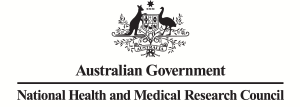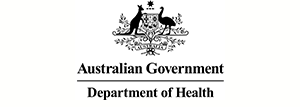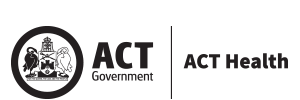How do we effectively embed health at all levels of political and policy decision-making?

Status completed
Start Date
End Date
Health needs to be considered in major policy and funding decisions across the entirety of government. This work aims to identify the factors that enable such intersectoral collaboration to happen, and how such initiatives should be designed.
The project provided evidence to improve understanding around the factors that facilitate the implementation and institutionalisation of inter-sectoral collaboration as well as the barriers to their implementation.
Introduction
This project will continue to produce peer-reviewed publications and other resources beyond its funding end date.
Featured project resources
-
Multisectoral collaboration and its impact on health and wellbeing
Resource category:Findings Brief
Date -
Seminar: Multisectoral collaboration and its impact on health and wellbeing
Resource category:Videos
Date
About
Multi-sectoral Action for Community Health (MACHI): Institutionalising a whole-of-government approach to chronic disease prevention
Project titleWhat is the issue?
Improving population health must comprise working closely with other sectors, embedding health decisions at all levels. Ensuring processes within governments can enable valuable inter-sectoral collaboration (health with the environment, for example) are in place that important population health decisions are recognised, embedded and implemented. It is apparent that the institutions of government are often not aligned well to encourage such collaboration and therefore government action, particularly in health, is often criticised for being ‘siloed’.
Previous initiatives in this area such as the World Health Organization’s Health in All Policy (HiAP) have had varying levels of success in various jurisdictions around the world, including in Australia.
How did the project address the issue?
The project team involved working in partnership with the Tasmanian Department of Health using a combination of evidence and document review, qualitative interviews and stakeholder consultations. Through this co-production approach, researchers and policy partners identified, and then with the benefit of existing evidence, synthesised lessons from past or existing initiatives.
The project aimed to develop guidelines for the institutionalisation of intersectoral collaboration for health based on best practice and drawn from international and local experience. It also hoped to provide government with ideas for how such collaboration can be optimised and evaluated. Ultimately, the evidence generated from this research will help mobilise action toward addressing the social determinants of health by encouraging a whole-of-government and whole-of-society approach to disease prevention.
What were the outcomes?
The evidence generated provides guidance for governments on the implementation of intersectoral programs for the prevention of non-communicable diseases based on best practice from international and local experience. This will help governments to more effectively tackle the social determinants of health and potentially address inequities in health outcomes associated with these determinants.
What is the relevance for policy?
Health needs to be considered in major policy and funding decisions across the entirety of government. This work helped to identify factors that enable such intersectoral collaboration to happen, and how such initiatives should be designed.
The initial idea for this work derived from consultations with funding partners and is therefore co-produced. The questions addressed in the study deal with live policy initiatives in Tasmania and addressed the universal concern over inter-sectoral collaboration for health.
Resources
-
Multisectoral collaboration and its impact on health and wellbeing
Resource category:Findings Brief
Date -
Seminar: Multisectoral collaboration and its impact on health and wellbeing
Resource category:Videos
Date
People
Lead investigators
-
Professor Stephen Jan
The George Institute for Global Health -
Dr Bindu Patel Dr Bindu Patel has finished working with the Prevention Centre.
The George Institute for Global Health
Project team
-
Dr Patrick Harris Dr Patrick Harris has finished working with the Prevention Centre.
Centre for Health Equity Training, Research and Evaluation, University of NSW -
Associate Professor Fiona Haigh Associate Professor Fiona Haigh has finished working with the Prevention Centre.
Health Equity Research Development Unit (HERDU) -
Carmel Williams Carmel Williams has finished working with the Prevention Centre.
Wellbeing SA -
Associate Professor Siobhan Harpur
Public Health Services Tasmania -
Professor Andrew Wilson AO
The University of Sydney -
Distinguished Professor Billie Giles-Corti
RMIT University -
Professor Sharon Friel Professor Sharon Friel has finished working with the Prevention Centre.
Australian National University -
Professor Rob Carter Professor Rob Carter has finished working with the Prevention Centre.
Deakin University -
Professor Lennert Veerman
Griffith University


















